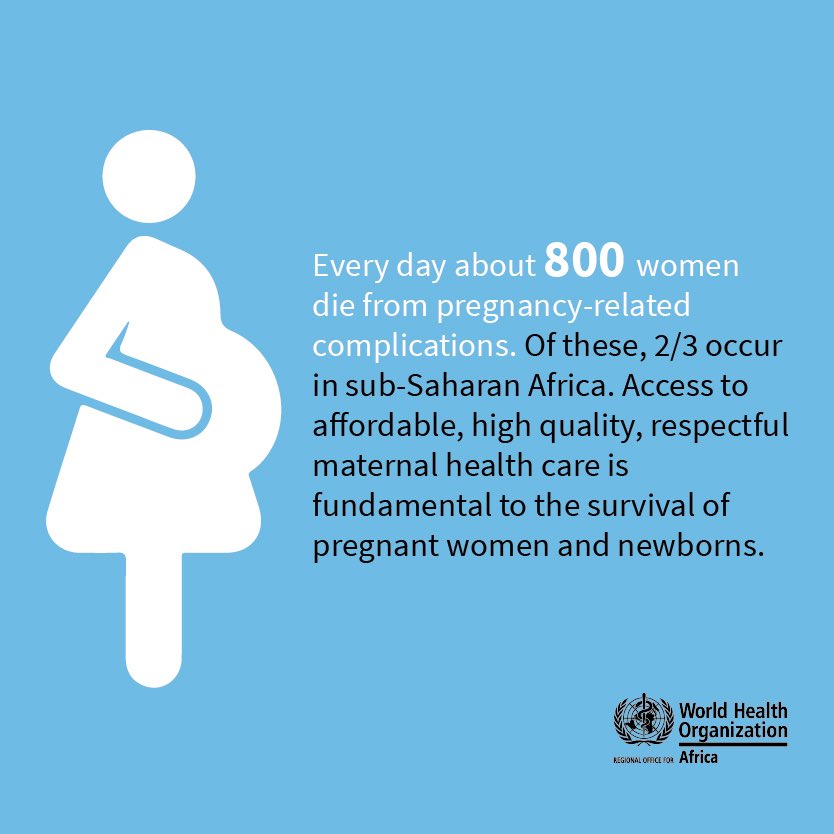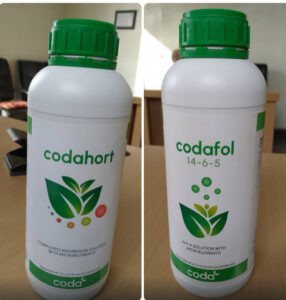by Malachie Tuyishime.
Access to affordable, quality, respectful maternal health care is fundamental to the survival of pregnant women and newborns. Some pregnancies end tragically with maternal and/or fetal/child death or cause severe maternal and/or child impairment. In 2013, about 300 000 maternal deaths occurred worldwide, and every year more than one and half million women suffer from pregnancy-related complications during pregnancy and delivery. Maternal haemorrhage is the leading cause of maternal mortality, representing 33.9% of all maternal deaths in Africa.
The following are some common maternal health conditions or problems a woman may experience during pregnancy
Anemia
Anemia is having lower than the normal number of healthy red blood cells. Treating the underlying cause of the anemia will help restore the number of healthy red blood cells. Women with pregnancy related anemia may feel tired and weak. This can be helped by taking iron and folic acid supplements. Your health care provider will check your iron levels throughout pregnancy.
Urinary Tract Infection (UTI)
A UTI is a bacterial infection in the urinary tract. You may have a UTI if you have—
- Pain or burning when you use the bathroom.
- Fever, tiredness, or shakiness.
- An urge to use the bathroom often.
- Pressure in your lower belly.
- Urine that smells bad or looks cloudy or reddish.
- Nausea or back pain.
If you think you have a UTI, it is important to see your health care provider. He/she can tell if you have a UTI by testing a sample of your urine. Treatment with antibiotics to kill the infection will make it better, often in one or two days. Some women carry bacteria in their bladder without having symptoms. Your health care provider will likely test your urine in early pregnancy to see if this is the case and treat you with antibiotics if necessary.
Mental Health Conditions
Some women experience depression during or after pregnancy. Symptoms of depression are:
- A low or sad mood.
- Loss of interest in fun activities.
- Changes in appetite, sleep, and energy.
- Problems thinking, concentrating, and making decisions.
- Feelings of worthlessness, shame, or guilt.
- Thoughts that life is not worth living.
When many of these symptoms occur together and last for more than a week or two at a time, this is probably depression. Depression that persists during pregnancy can make it hard for a woman to care for herself and her baby. Having depression before pregnancy also is a risk factor for postpartum depression. Getting treatment is important for both mother and baby. If you have a history of depression, it is important to discuss this with your health care provider early in pregnancy so that a plan for management can be made.
Hypertension (High Blood Pressure)
Chronic poorly-controlled high blood pressure before and during pregnancy puts a pregnant woman and her baby at risk for problems. It is associated with an increased risk for maternal complications such as preeclampsia, placental abruption (when the placenta separates from the wall of the uterus), and gestational diabetes.
The most important thing to do is to discuss blood pressure problems with your provider before you become pregnant so that appropriate treatment and control of your blood pressure occurs before pregnancy. Getting treatment for high blood pressure is important before, during, and after pregnancy.
Diabetes during Pregnancy
Learn about types of diabetes during pregnancy, the percentage of women affected, and what CDC is doing to address this important health topic. Managing diabetes can help women have healthy pregnancies and healthy babies.
Obesity and Weight Gain
Recent studies suggest that the heavier a woman is before she becomes pregnant, the greater her risk of pregnancy complications, including preeclampsia, GDM, stillbirth and cesarean delivery. Also, CDC (Centers for Disease Control and Prevention) research has shown that obesity during pregnancy is associated with increased use of health care and physician services, and longer hospital stays for delivery. Overweight and obese women who lose weight before pregnancy are likely to have healthier pregnancies
Infections
During pregnancy, your baby is protected from many illnesses, like the common cold or a passing stomach bug. But some infections can be harmful to you, your baby, or both. Easy steps, such as hand washing, and avoiding certain foods, can help protect you from some infections. You won’t always know if you have an infection—sometimes you won’t even feel sick. If you think you might have an infection or think you are at risk, see your health care provider.
Infections with HIV, Viral Hepatitis, STDs, and TB Can complicate pregnancy and may have serious consequences for a woman, her pregnancy outcomes, and her baby. Screening and treatment for these infections, and vaccinations against viruses, such as hepatitis B and human papillomavirus, can prevent many bad outcomes.
Hyperemesis Gravidarum
Many women have some nausea or vomiting, or “morning sickness,” particularly during the first 3 months of pregnancy. The cause of nausea and vomiting during pregnancy is believed to be rapidly rising blood levels of a hormone called HCG (human chorionic gonadotropin), which is released by the placenta. However, hyperemesis gravidarum occurs when there is severe, persistent nausea and vomiting during pregnancy—more extreme than “morning sickness.” This can lead to weight loss and dehydration and may require intensive treatment.
The prevalence of post-partum haemorrhage (PPH) in the world is approximately 6%. In Uganda, between 2013 and 2014, the incidence of PPH was 9%, while the prevalence of maternal haemorrhage was estimated to be around 19.3% in Rwandan referral hospitals. According to the WHO, hypertensive disorders during pregnancy account for 9% of maternal mortality in Africa and Asia.
According to the report of UNICEF in Rwanda the number of women and girls who died each year from complications of pregnancy and childbirth declined from 451,000 in 2000 to 295,000 in 2017. These improvements are particularly remarkable in light of rapid population growth in many of the countries where maternal deaths are highest. Still, over 800 women are dying each day from complications in pregnancy and childbirth. And for every woman who dies, approximately 20 others suffer serious injuries, infections or disabilities.





